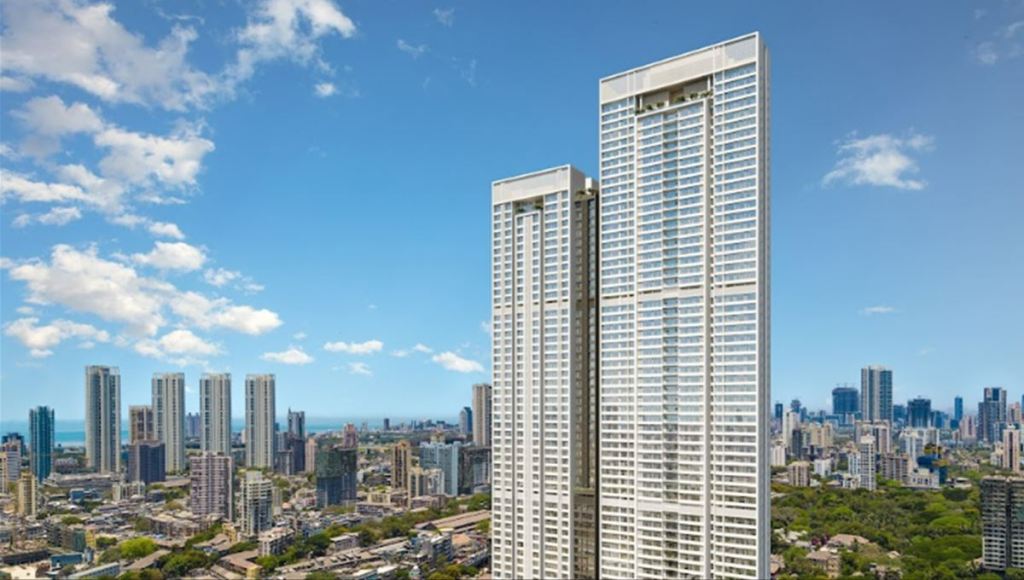The Indian real estate sector has witnessed a significant transformation over the past few years, with luxury housing emerging as a notable segment that has garnered substantial attention from investors and homebuyers alike. Mumbai, often referred to as the financial capital of India, stands out as a hub for luxury housing development among the major Indian cities. The growth outlook for luxury housing in Mumbai and India at large highlights the factors that are driving the demand for opulent residences.
Luxury housing is defined as high-end residential properties that offer exceptional living experiences and are distinguished by premium amenities, modern architecture, and strategic locations. Several factors, including changing lifestyles, preferences, and economic dynamics, have contributed to a remarkable increase in the demand for luxury housing in India over the last decade.
A new industry report claims that, compared to the same period in the previous year, sales of luxury residences in Mumbai priced at Rs. 10 crore or more soared by more than 60% to Rs. 11,400 crores. The report also claims that several micro-markets in South and Central Mumbai were responsible for this increase, with the emergence of new markets as well. The following are a few drivers that have contributed to the growth of luxury housing in Mumbai and India at large:
Rapid Urbanization and Rising Affluence:
One of the primary factors contributing to the growth of luxury housing in Mumbai and India is the rapid urbanization accompanied by a rise in affluence. As cities expand and economies flourish, there is a growing population of high-net-worth individuals (HNWIs) and ultra-high net worth individuals (UHNWIs) seeking residences that offer exclusivity, opulence, and an elevated living experience.
Furthermore, Increased globalization and exposure to international living standards have influenced the preferences of Indian home buyers. Many people who have lived in luxury in global cities wish to achieve similar standards in their own country. This has prompted developers to use modern architectural designs and high-end fittings and finishes that cater to these preferences.
Also Read: Strategic considerations for successful real estate investments
Changing Aspirations and Lifestyle Preferences:
The evolving aspirations and lifestyle preferences of the affluent class have played a crucial role in driving the demand for luxury housing. Today’s discerning buyers seek residences that go beyond the conventional definition of luxury. They desire homes that provide a comprehensive range of amenities, personalized services, state-of-the-art technology, and sustainable features. Developers are responding to these demands by creating luxurious properties that cater to these changing preferences.
Infrastructure Development and Connectivity:
The development of infrastructure and enhanced connectivity have also contributed to the growth of luxury housing. Improved transportation networks, such as metro rail systems, highways, and airport expansions, have made previously inaccessible areas more desirable for luxury residential developments. These infrastructural advancements have opened new locations, offering a wider choice of prime residential options for affluent buyers.
Foreign Direct Investment and NRI Investments:
Foreign direct investment (FDI) and investments from non-resident Indians (NRIs) have played a significant role in boosting the luxury housing market in India. The relaxation of foreign investment norms and favourable government policies have attracted global investors and NRIs looking to invest in the Indian real estate market. The luxury segment has particularly benefited from these investments, as they seek premium properties that provide long-term value appreciation and potential rental income.
Strong Economic Growth and Stable Real Estate Market:
India’s strong economic growth and a stable real estate market have instilled confidence among luxury homebuyers. Favourable economic conditions, coupled with a stable regulatory environment, have created a conducive atmosphere for investment in high-end residential properties. The luxury housing segment has emerged as a haven for investors seeking to diversify their portfolios and capitalize on the potential long-term appreciation of these assets.
Exclusivity and Prestige:
Luxury housing offers exclusivity and prestige, which are highly valued by affluent buyers. Owning a luxurious residence provides a sense of accomplishment and social status. The allure of living in a distinguished neighbourhood with like-minded individuals and access to top-notch amenities is a significant factor driving the demand for luxury homes.
The growth outlook for luxury housing in Mumbai and India remains positive, fuelled by a combination of factors. Rapid urbanization, rising affluence, changing aspirations, infrastructure development, foreign investments, strong economic growth, and the appeal of exclusivity and prestige are all driving the demand for upscale residential properties. Developers are responding to these evolving demands by creating luxurious homes that offer unparalleled amenities, customization options, and an elevated living experience.
As the luxury housing segment continues to evolve, it is crucial for developers and industry stakeholders to stay attuned to the changing preferences and expectations of affluent buyers. By adapting to the shifting landscape and delivering on the promise of luxury, the real estate industry can further capitalize on the growth opportunities presented by the demand for upscale housing in Mumbai and India at large.
(By Cyrus Mody, Founder and CEO at Viceroy Properties. Views are personal)


